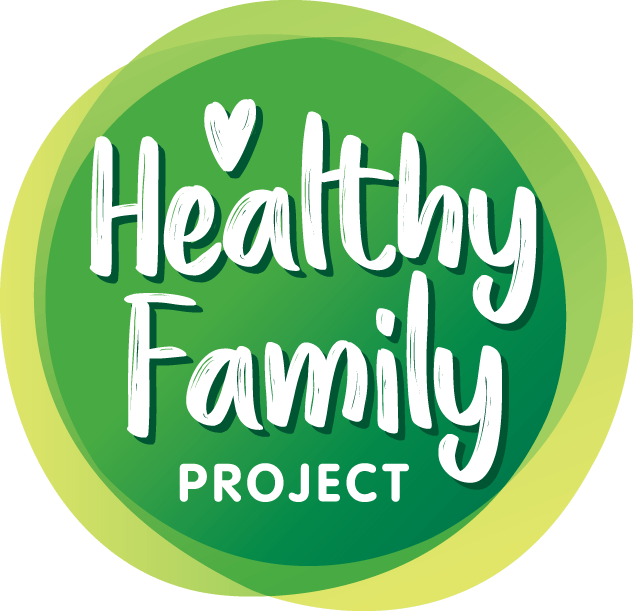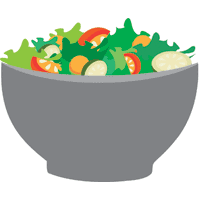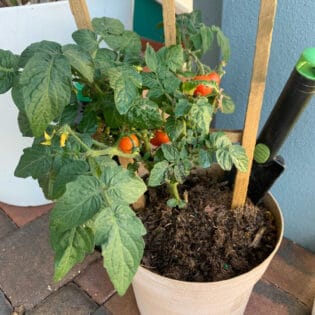Food Rx: Foods for Gut Health
We’re teaming up with Julie Harrington, registered dietitian and culinary nutrition chef in a monthly series focusing on the important role food plays in overall health.

In recent years, the discussion around gut health has increased in the world of health and wellness. This discussion can be overwhelming.
What is gut health? Is it that big a deal? What should I eat for gut health? You may be asking yourself these questions but, don’t worry we’re here to clear some things up in this episode of Food Rx.
What is gut health?
Gut health is the functioning of the whole gastrointestinal tract plus the bacteria within it. Organs like the intestines, stomach, and more work with the bacteria to create a smooth digestion process.
Why is gut health important?
When talking about gut health you’ll hear the terms probiotics and microbiome frequently. Probiotics are the good bacteria that live in the gut while the microbiome refers to where the organisms live, which is typically in the intestines.
The gastrointestinal (GI) tract is constantly working in your body so it‘s important to keep everything healthy and copacetic. Food going through the digestive system is how nutrients are digested and absorbed. The microbiome additionally protects the gut from harmful bacteria and toxins.
If there is an imbalance or something is not functioning properly, it can lead to issues like IBS, heartburn, and stomach pains. Those are just some direct effects of poor gut health; it also has connections to the immune system, anxiety, mental health, and some cancer risks.
What are the signs/symptoms of an unhealthy gut?
There can be many potential signs of an unhealthy gut. A general sign is stomach discomfort and pain. Stomach discomfort could be a variety of things like bloating, abdominal pain, diarrhea, constipation, and/or gas.
If these symptoms occur on a regular basis interfering with everyday life, it is recommended to see a doctor.
Frequent belching or acid reflux, and chronic fatigue could also be a signal that there is an imbalance in the microbiome. When helpful bacteria in the gut is imbalanced or not growing enough, then things like the intestines and stomach are left vulnerable to toxins and viruses.
What foods are good for gut health?
There is a lot that can affect your gut health but not all of it is negative. There are a quality amount of foods that help improve gut health.
Keep in mind, these foods will not immediately cure digestional issues but incorporating them into your diet will certainly be helpful to your gut overall well-being.
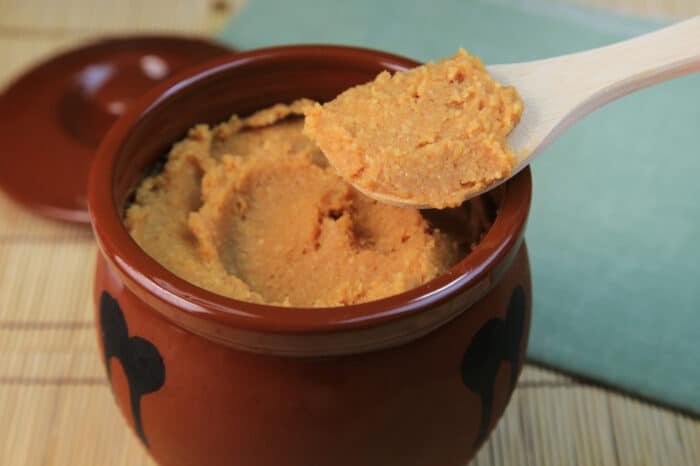
Miso
A fermented soybean and koji paste found in many Japanese dishes, soups, and sauces. What makes miso so special is its fermentation process.
Fermentation is when sugars are broken down with some kind of microorganism, like yeast or bacteria. While this breakdown is happening heat is given off which creates a perfect ecosystem for the growth of probiotics.
Recipe inspiration: Miso Sheet Pan Salmon with Green Beans
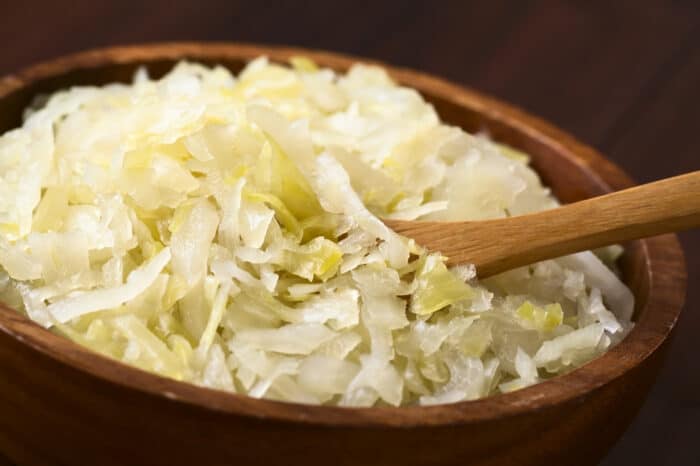
Sauerkraut
Made from cabbage, sauerkraut has a lot of properties to help gut health. The main thing sauerkraut has is probiotics. Like Miso, cabbage goes through fermentation therefore creating a great environment for probiotics.
Recipe inspiration: Reuben Sandwich

Yogurt
Yogurt is also rich in probiotics! It’s even a source of one specific group of probiotics called bifidobacterium. This group of bacteria is commonly found in dairy products and has shown to reduce symptoms of inflammatory bowel disease.
Yogurt is a great food that can be added to the diet in a ton of ways. Make parfaits, dips, and even marinades!
Recipe inspiration: Stone Fruit Yogurt Parfaits
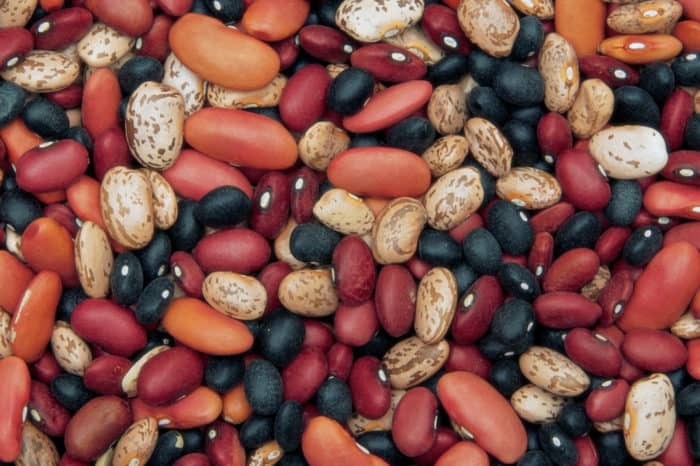
Beans & Legumes
They’re full of fiber which is crucial to a happy digestive system. Fiber does a lot for the body. It helps keep the body feeling satiated and helps balance blood sugars and cholesterol levels.
Another major thing it does is help keep digestion regular. Insoluble fiber specifically, can’t be dissolved in water so it moves through the digestive tract picking up waste along the way.
Recipe inspiration: Coconut Curry Lentil
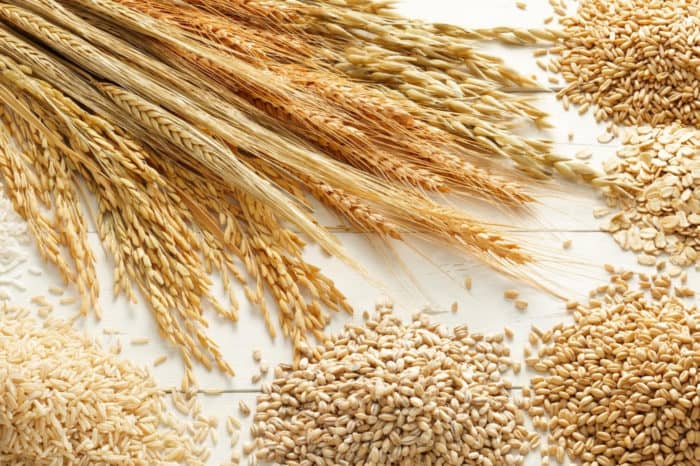
Whole Grains
Whole grains are full of fiber, vitamins, and minerals that will help keep a healthy GI tract. It’s good to try and incorporate more whole grains into the diet and less simple sugars that are generally in processed foods.
Too many simple sugars can mess with the body’s bacteria and hormones which results in cravings and inflammation. Whole grains, on the other hand, will provide more complex carbs to break down and fiber which will leave you feeling full longer and a more balanced body.
Recipe inspiration: Pear and Almond Overnight Oats
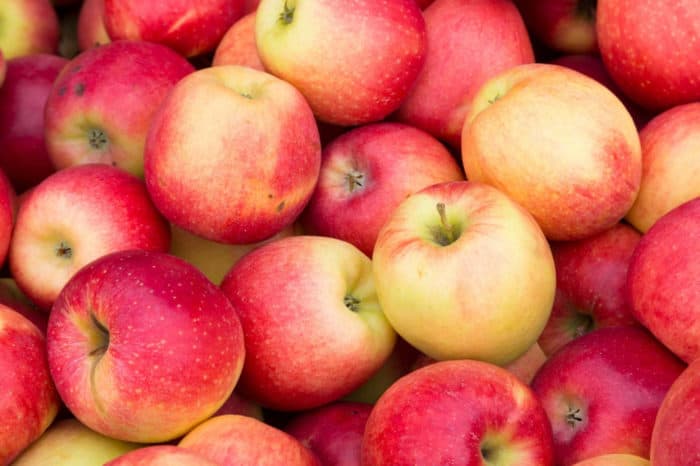
Apples
An apple a day keeps the doctor away! Eating apples whole allows you to get the fiber from the skin. They also are made of a lot of pectin and polyphenols. Together, pectin and polyphenol help metabolize fats and improve gut health.
Recipe inspiration: Spiced Apple Quesadillas
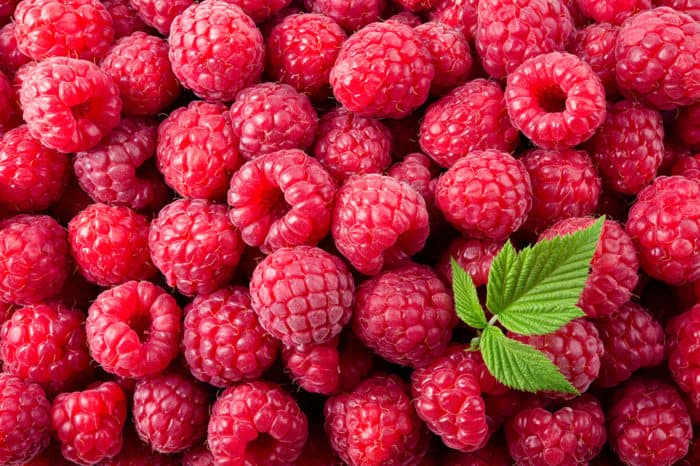
Raspberries
Raspberries are a food source of prebiotics. Not to be confused with probiotics, prebiotics feed the probiotics. We dive deeper into probiotics in a previous Food Rx episode.
It’s just as important to take care of your probiotic as it is your gut because those good bacteria help protect our body from toxins, viruses, and even inflammation. So, if those probiotics are well fed in a good environment, they’ll continue to benefit the body!
Recipe inspiration: Raspberry Walnut Salad
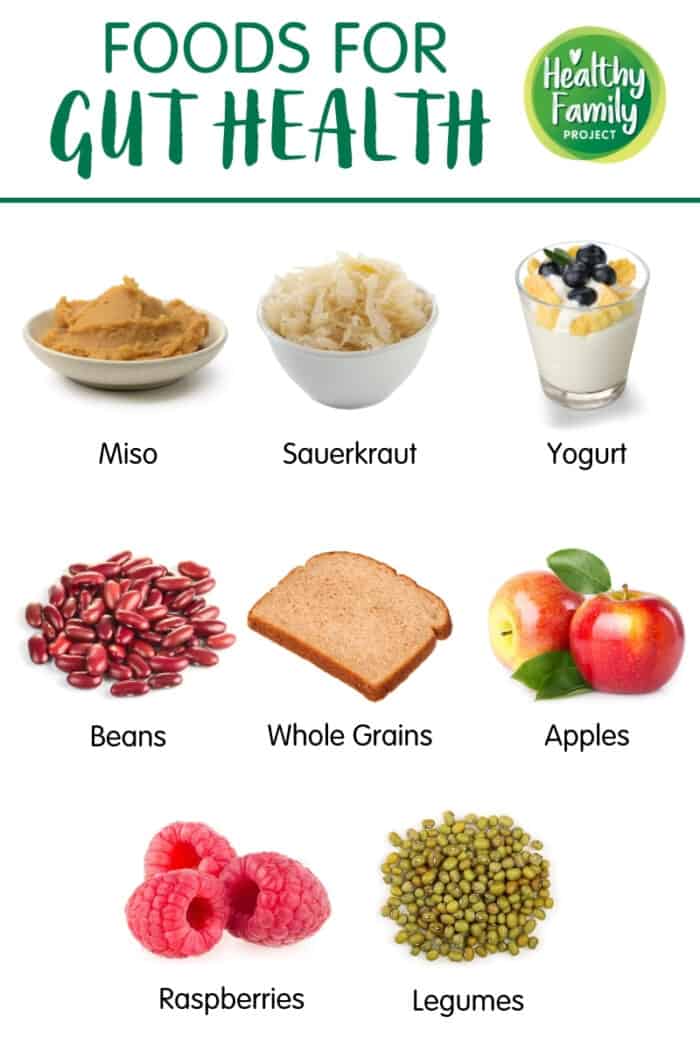
Disclaimer: Before making any health or diet changes, please consult your doctor. The information shared as part of Food Rx is meant to be informative but not replace medical advice from your doctor.







